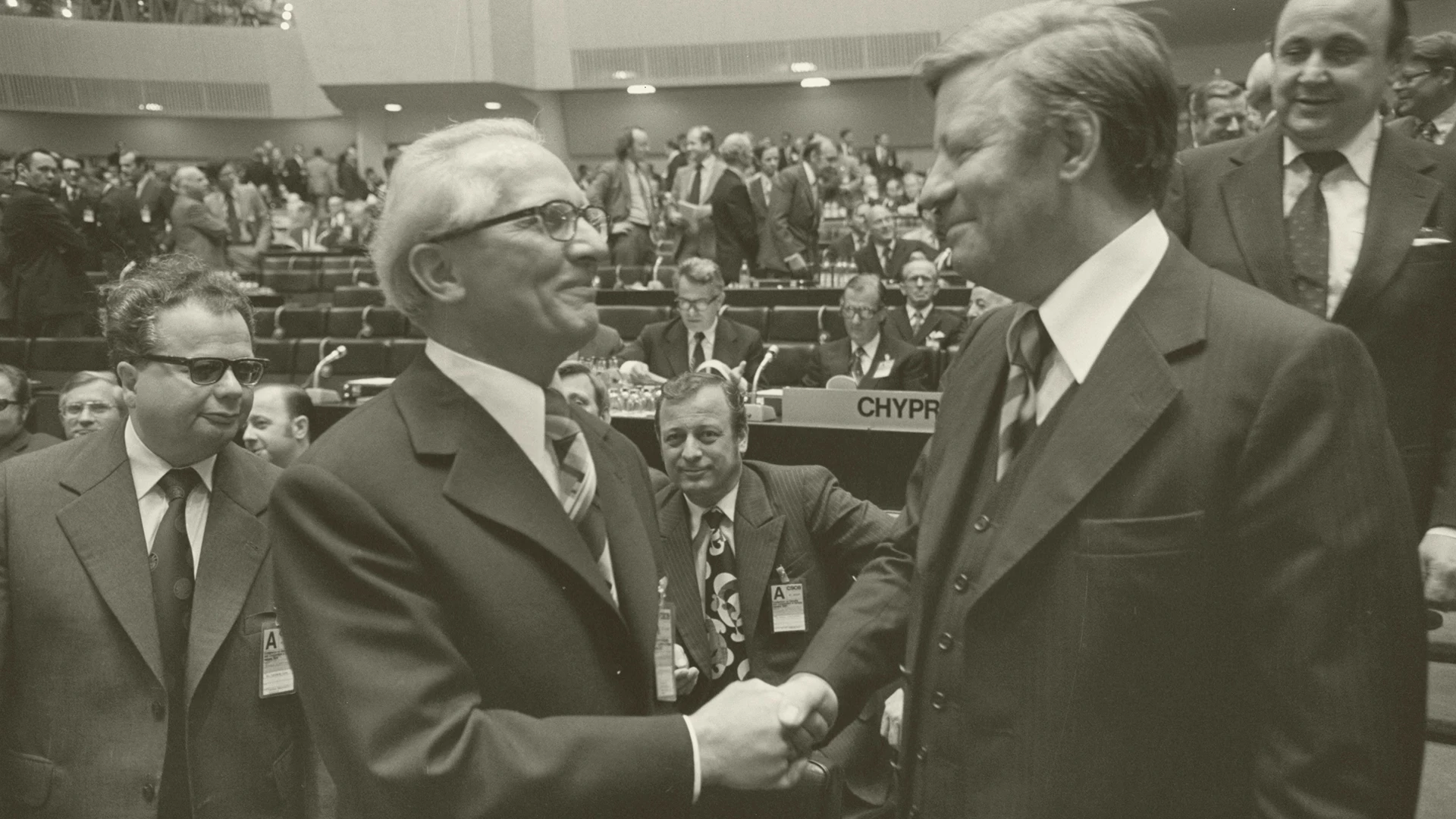20. Jahrhundert: 1945 bis heute | Friedliche Revolution 1989/90
The End of the East-West Conflict
The East-West conflict defines world politics for more than four decades. Its end is ushered in from 1985 by the new Soviet leader Mikhail Gorbachev’s reform policy, which now allows the Eastern Bloc countries to determine their own political and social systems. In Hungary and Poland, public debates on free elections are held. Unlike in the GDR, where the Erich Honecker government insists on its strict political course. But more and more citizens take to the streets, demanding democratic change and freedom to travel. On November 9, 1989, the Berlin Wall, which had cemented the political division of Germany and Europe since 1961, is finally brought down. Its fall stands for the end of the Cold War. This is finally sealed with the dissolution of the Soviet Union in 1991. | In this film version, German interviews and historical or literary quotes remain untranslated.
mehr
weniger
communism, socialism, SED, State Security, Stasi, police state, local election day, electoral fraud, protest, China, Chinese solution, Soviet Union, Russia, Michail Gorbachev, Glasnost, Perestroika, democratisation, Revolution from above, Eastern Bloc states, Hungary, Prague, Poland, détente policy, Austria, border fortifications, Eastern Bloc, Iron Curtain, GDR, demonstrations, Leipzig, Church of St. Nicholas, Prague Embassy, exit, civil rights movement, New Forum, opposition, state power, GDR’s 40th anniversary, reforms, demonstrators, People’s Police, Monday Demonstrations, Egon Krenz, travel regulation, press conference, intra-German border, Cold War, Berlin Wall, Brandenburg Gate, central Round Table, government, Red Army, economy, Helmut Kohl, Chancellor of Unity, reunification, democratic elections, alliance for Germany, victorious powers, Two-Plus-Four Talks, NATO, Warsaw Pact, D-Mark, capitalism
Geeignet für die Fächer:
Geschichte
Empfehlung der Medienbegutachtung Baden-Württemberg für den Geschichtsunterricht


